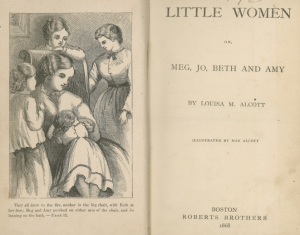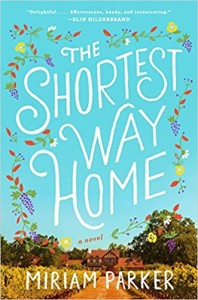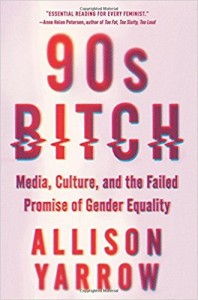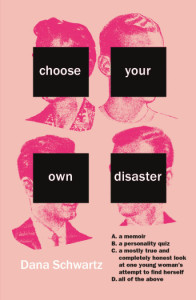Author Archives: Sarah M. Seltzer
February 23, 2021 by Sarah M. Seltzer
Digging Deeper into Esther’s Mysteries
Some consider the Book of Esther history. Others, a fairy tale. After all, there is a virtuous and beautiful maiden and her protective (non-fairy) godparent, a king, a villain, looming danger, a heroic act and then… an improbably happy ending. Whether history or myth, Esther is more complicated than she seems. Like all biblical literature, there is meaning in the details. With its multiple reversals of fortune and the absence of any direct reference to God, Esther’s story raises numerous questions. So, it’s a thrill to read an author and teacher whose knowledge of rabbinic texts, classical sources and modern critical commentaries combine to tackle these questions. Esther: Power, Fate and Fragility in Exile by Erica Brown [Maggid Press, $29.95], does just that, while remaining accessible to readers of all levels.
Brown’s thought-provoking explorations of character, especially of the mysterious Vashti and her more successful counterpart, Esther, are well worth reading, as is her analysis of their reception throughout history. Brown details rabbis’ condemnation of Vashti’s alleged immorality and also explains how the pioneers of the women’s suffrage movement adopted her as a defender of women’s rights!
(more…)- No Comments
February 19, 2021 by Sarah M. Seltzer
An Open Letter from Vashti to Her Successor
Dear New Queen,
If you are reading this, I am long gone. I left the palace behind. I may have even left Shushan. I’m not sure where I will be when you receive this letter, but I’m far away from the king, his ministers, and a life that was never mine. Wherever I am, my story is now my own. I am free.
My name is Vashti. The king sent me away because I refused to dance at his party. As a child, I loved dancing. I spun barefoot circles with my mother and her sisters. My palace was in her arms, her stories were in my ears, and her song was my heartbeat. When I think of dancing, I think of my mother, even though she is long gone too.
(more…)- 1 Comment
December 30, 2020 by Sarah M. Seltzer
The Pop Culture That Got Lilith’s Staff Through 2020
We at Lilith, like everyone on earth, couldn’t be happier to say goodbye to 2020— but before we go, here are our recommendations for the books, podcasts, and television shows that helped us make it through the year.
- No Comments
January 22, 2020 by Sarah M. Seltzer
I Thought I Was Jo: Revisiting “Little Women.”
 I thought I was Jo.
I thought I was Jo.
Most people thought they were Jo, it’s true, but I really did, as I inhaled Louisa May Alcott’s Little Women. I tucked it in between the pages of my siddur on Yom Kippur, standing and sitting as instructed by the rabbi, but frolicking in Concord Massachusetts all the while. I was so much like her: mad about injustice, messy, impulsive, bookish, bossy on the playground as I dictated to my friends what we would be pretending that day.
Greta Gerwig’s new, much-ballyhooed film adaptation of Little Women emphasizes Jo’s journey from director of childhood theatricals and imaginary games to successful novelist. Yet it’s not a simple triumph. Jo loses her sister, the possibility of romance torpedoes her closest friendship; her other sisters face their own cares, and her writing life is often more mercenary than glamorous. The film draws out a particular current of bittersweetness from the book, rueing the onset of adulthood; for women, who face pigeonholing (but really for all children, even Laurie, a young man who wants to be part of the play-acting of his girl neighbors) the bigger story is of the gradual winnowing down of childhood’s wild potential.
- 3 Comments
October 23, 2018 by Sarah M. Seltzer
A Romantic Novel That Acknowledges the Limits of Romance
 At the end of the summer, I was happy to curl up with a book that takes place in a beautiful winery, with two handsome male characters vying for the protagonists hand. It sounds fun and escapist–and it is! But Miriam Parker’s The Shortest Way Home goes deeper than its bubbly, clear surface, subtly questioning conventional definitions of success for its heroine, Hannah, who begins the novel with a lucrative job and a rich boyfriend.
At the end of the summer, I was happy to curl up with a book that takes place in a beautiful winery, with two handsome male characters vying for the protagonists hand. It sounds fun and escapist–and it is! But Miriam Parker’s The Shortest Way Home goes deeper than its bubbly, clear surface, subtly questioning conventional definitions of success for its heroine, Hannah, who begins the novel with a lucrative job and a rich boyfriend.
She ends it in a far different place. Lilith spoke to Parker about undercutting rom-coms, learning about wine, and her favorite Jewish feminists.
What inspired you to set the book in wine country?
The germ of it began a long time ago. In around 2010, I was out in California for work, and by myself, I got a little hotel room in downtown Sonoma, walked around, and fell in love with the place. I even found a winery and ended up signing up for the wine club so every few months these wines would show up and remind me.
- No Comments
August 21, 2018 by Sarah M. Seltzer
The Patriarchy-Free Paradise of “Mamma Mia!”
 This piece contains spoilers for Mamma Mia 2: Here We Go Again. Not a spoiler: you’ll laugh, you’ll cry, you’ll dance poorly to ABBA.
This piece contains spoilers for Mamma Mia 2: Here We Go Again. Not a spoiler: you’ll laugh, you’ll cry, you’ll dance poorly to ABBA.
Ten years ago I wandered into a movie theater on a hot summer weekend and was surprised to fall in love with the bell bottoms and thudding beat of ABBA-musical-turned-Meryl Streep vehicle “Mamma Mia!”. At the time, I was especially charmed to discover the “feminist heart beneath its cheesy 70s kitsch exterior”—given that the movie hinges on woman’s freewheeling sexual past without shaming her for it.
A lot has changed in a decade; whereas the original “Mamma Mia!” passed skeptical critics by, only to become a smash hit with audiences, its long-awaited sequel now flows into the culture with the natural ease of olive oil in a Greek dish. In the era of female-driven shows like “Crazy Ex-Girlfriend” and “Jane the Virgin” that combine elements of camp, fantasy and genre with sensitive exploration of women’s lives, viewers are primed to enjoy this kind of entertainment unironically, while a more open-minded group of critics are bolstering their pleasure with praise.
- No Comments
August 1, 2018 by Sarah M. Seltzer
More Summer Page-Turners and Pleasure Reads
The world is in a pretty dark spot right now, and books–whether heartbreaking or quirky or incandescent—are a rare opportunity to step away from the chaos and enlighten yourself at the same time. So we at Lilith think it’s okay—nay, great—to lose yourself in a summer story that gives you pleasure while you turn its pages.
So in addition to Chanel Dubofksy’s picks from last week, here are a few more 2018 books, ranging from slight to serious, that should give Jewish feminist readers (and indeed, all readers) something to curl up with as the summer hits its sultry stride.
- No Comments
June 20, 2018 by Sarah M. Seltzer
The Bitches of the 1990s Weren’t Villains After All
 “Jews are really good at knowing our history,” says Allison Yarrow, author of the new book 90s Bitch, which casts a critical eye on the gender politics of the Clinton years, from Monica Lewinsky to Marcia Clark, examining how the rise of the 24/7 media landscape turned them into villains, pushing sexism and silencing into the air we breathe today.
“Jews are really good at knowing our history,” says Allison Yarrow, author of the new book 90s Bitch, which casts a critical eye on the gender politics of the Clinton years, from Monica Lewinsky to Marcia Clark, examining how the rise of the 24/7 media landscape turned them into villains, pushing sexism and silencing into the air we breathe today.
“We need to know the real history of what happened in the 1990,” Yarrow told Lilith, during a chat that covered Bill Clinton’s non-apology, the limits of nostalgia, the Sex and the City anniversary and of course, the word “bitch.”
- No Comments
June 14, 2018 by Sarah M. Seltzer
Dana Schwartz on Humor, Rejecting the “Guilty Pleasure” Label and Terrible Jews
 Dana Schwartz has a knack for getting the internet’s attention. Whether it’s impersonating the pretentiousness of the aspiring male literati for her wildly popular “Guy in Your MFA” fictional Twitter account or taking on Jared Kushner for enabling anti-Semitism—while he was her boss at the New York Observer—Schwartz knows how to harness the zeitgeist by being herself.
Dana Schwartz has a knack for getting the internet’s attention. Whether it’s impersonating the pretentiousness of the aspiring male literati for her wildly popular “Guy in Your MFA” fictional Twitter account or taking on Jared Kushner for enabling anti-Semitism—while he was her boss at the New York Observer—Schwartz knows how to harness the zeitgeist by being herself.
Next week, she’ll release her memoir disguised as a personality quiz, “Choose Your Own Disaster.” At the seasoned age of 25, Schwartz plumbs the depths and heights of her college and post-college life to bring us poignant hilarity about travel, angst and eating disorders–as well as finding romance and the elusive adult self. She spoke to Lilith recently about stereotypes around women’s writing, where her sense of humor comes from, and the worst Jews in public life.
- No Comments
June 7, 2018 by Sarah M. Seltzer
“Do You Know What a Fascist Is?”
For parents of young children, daily life revolves around the dance between bonding and separation. It causes us a great deal of anxiety, this constant leaving and returning. We tell our children comforting things like “mommy always comes back,” and fret about keeping that promise. It’s hard, this reality, this learning curve. But we are the privileged ones who live safely, out of the gruesome reach of Immigration and Customs Enforcement (ICE) and the prison system. For other families just like ours but with different luck, each day brings the possibility of brutal separations without clear end.
So how can the rest of us allow the government, in our name, to wrench families apart?
- No Comments
 Please wait...
Please wait...